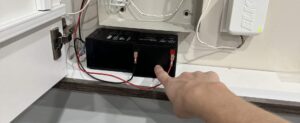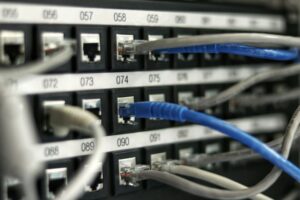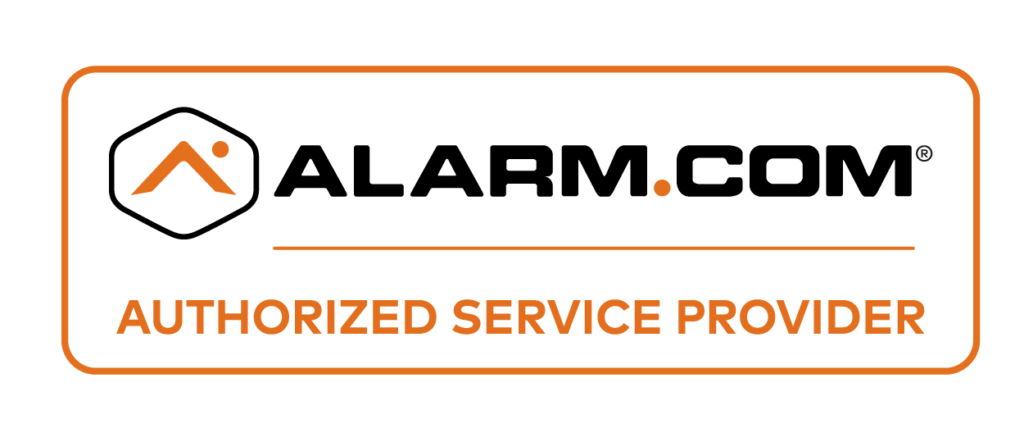Home security systems are a crucial aspect of protecting your home and ensuring the safety of your family. These systems are designed to detect and prevent unauthorized entry into your property, as well as provide early detection of fires and carbon monoxide leaks. With advancements in technology, home security systems have become more sophisticated and accessible to homeowners.
The importance of home security systems cannot be overstated. According to the Federal Bureau of Investigation (FBI), there were approximately 1.2 million burglaries reported in the United States in 2019. Having a home security system in place can significantly reduce the risk of becoming a victim of burglary or break-in. Additionally, these systems can provide peace of mind, knowing that your home is protected even when you are away.
Key Takeaways
- Home security systems provide peace of mind and protection for your home and family.
- There are various types of home security systems available, including wired, wireless, and DIY options.
- Benefits of a home security system include deterrence of burglars, remote monitoring, and potential discounts on home insurance.
- Home security systems typically work by using sensors to detect intruders and alerting the homeowner or monitoring service.
- Components of a home security system may include door and window sensors, motion detectors, and a control panel.
- Choosing the right home security system involves considering factors such as budget, level of protection needed, and ease of use.
- Proper installation and maintenance of a home security system is crucial for optimal performance.
- Monitoring services for home security systems can provide additional protection and peace of mind.
- Common misconceptions about home security systems include that they are too expensive or only necessary for high-crime areas.
- Investing in a home security system is a smart decision for protecting your home and loved ones.
Types of Home Security Systems
There are several types of home security systems available on the market today. Each type has its own set of advantages and disadvantages, depending on your specific needs and preferences.
Wired systems are the traditional type of home security system, where all the components are connected through a network of wires. These systems are reliable and offer a stable connection, but they require professional installation and can be more expensive.
Wireless systems, on the other hand, use radio frequency signals to communicate between the various components. They are easier to install and can be more flexible in terms of placement, but they may be susceptible to interference from other wireless devices.
Hybrid systems combine both wired and wireless components, offering the best of both worlds. They provide a stable connection through wired components while allowing for flexibility with wireless devices.
For those who prefer a do-it-yourself approach, there are also DIY home security systems available. These systems are typically wireless and can be easily installed by homeowners themselves. They often come with user-friendly interfaces and can be customized to fit your specific needs.
Benefits of a Home Security System
1. Protection against burglaries and break-ins: One of the primary benefits of a home security system is the protection it provides against burglaries and break-ins. The presence of visible security cameras and alarm systems can act as a deterrent to potential intruders. In the event of a break-in, the alarm system will sound, alerting you and your neighbors, as well as potentially scaring off the intruder.
2. Early detection of fires and carbon monoxide leaks: Home security systems can also provide early detection of fires and carbon monoxide leaks. Smoke detectors and carbon monoxide detectors are often included in these systems, and they can alert you and the authorities in case of an emergency. This early detection can save lives and prevent extensive damage to your property.
3. Remote monitoring and control: Many home security systems now offer remote monitoring and control capabilities. This means that you can access your security system through a smartphone app or a web portal, allowing you to monitor your home from anywhere at any time. You can receive real-time alerts, view live video feeds from surveillance cameras, and even control smart devices such as locks and lights.
4. Insurance discounts: Another benefit of having a home security system is that it can lead to lower insurance premiums. Many insurance companies offer discounts to homeowners who have installed security systems, as they are seen as less risky to insure. These discounts can help offset the cost of the system over time.
How Home Security Systems Work
Home security systems work by using a combination of sensors, detectors, control panels, alarm systems, and communication channels to detect and respond to potential threats.
Sensors and detectors are placed strategically throughout your home to detect any unauthorized entry or movement. These can include door and window sensors, motion detectors, glass break detectors, and more. When these sensors are triggered, they send a signal to the control panel.
The control panel is the central hub of the home security system. It receives signals from the sensors and detectors and processes them accordingly. If an alarm is triggered, the control panel will activate the alarm system, which can include sirens, strobe lights, and even automated phone calls to the homeowner or monitoring service.
Communication channels are used to transmit signals between the various components of the home security system. These can include landline phone connections, cellular networks, or internet connections. The choice of communication channel will depend on the specific system and the homeowner’s preferences.
Components of a Home Security System
There are several components that make up a home security system. These components work together to provide comprehensive protection for your home.
Door and window sensors are placed on entry points such as doors and windows. They detect when these entry points are opened or closed and send a signal to the control panel.
Motion detectors use infrared technology to detect movement within a specific area. They are often placed in hallways or large rooms and can be adjusted to ignore pets or other non-threatening movements.
Glass break detectors are designed to detect the sound frequency of breaking glass. They are typically placed near windows or glass doors and can trigger an alarm if they detect the sound of glass breaking.
Surveillance cameras are an essential component of any home security system. They provide visual monitoring of your property and can deter potential intruders. Surveillance cameras can be placed both indoors and outdoors, depending on your needs.
Smart locks are another component that can be integrated into a home security system. These locks allow you to remotely lock and unlock your doors using a smartphone app or a web portal. They can also provide access logs, allowing you to see who has entered or exited your home.
Choosing the Right Home Security System for Your Needs
When choosing a home security system, it is important to assess your specific security needs and consider various factors such as budget, installation options, and compatibility with smart home devices.
Start by assessing your security needs. Consider factors such as the size of your home, the number of entry points, and any specific vulnerabilities you may have. This will help you determine the type and number of sensors, detectors, and cameras you will need.
Budget considerations are also important. Determine how much you are willing to spend on a home security system and factor in any ongoing costs such as monitoring fees or maintenance expenses. Keep in mind that while some systems may have a higher upfront cost, they may offer more advanced features and better overall protection.
Decide whether you want to opt for professional installation or a do-it-yourself approach. Professional installation ensures that the system is set up correctly and can provide peace of mind, but it can be more expensive. DIY installation can save you money but requires some technical knowledge and time investment.
If you already have smart home devices such as smart locks or smart thermostats, make sure that the home security system you choose is compatible with these devices. Integration with other smart home devices can enhance the overall functionality and convenience of your system.
Installation and Maintenance of a Home Security System
The installation process for a home security system will depend on whether you choose professional installation or a do-it-yourself approach.
Professional installation typically involves scheduling an appointment with a security company or technician who will come to your home and install the system for you. They will assess your property, determine the best placement for sensors and cameras, and ensure that everything is set up correctly. This option provides peace of mind but can be more expensive.
If you choose to install the system yourself, it is important to carefully read the instructions provided by the manufacturer. Make sure to follow all safety guidelines and take your time to ensure that each component is installed correctly. Test the system thoroughly before relying on it for protection.
Regular maintenance and testing are essential to ensure that your home security system is functioning properly. Test the system regularly to make sure that all sensors, detectors, and alarms are working correctly. Replace batteries as needed and clean any cameras or sensors to ensure clear visibility.
Monitoring Services for Home Security Systems
Monitoring services are an additional feature that can enhance the effectiveness of your home security system. These services involve a professional monitoring center that receives signals from your security system and takes appropriate action in case of an emergency.
There are different types of monitoring services available. The most common is professional monitoring, where a monitoring center is staffed 24/7 and can dispatch emergency services if necessary. This option provides an extra layer of protection and peace of mind, but it often comes with a monthly fee.
Self-monitoring options are also available, where you receive alerts directly to your smartphone or email in case of an alarm. With self-monitoring, you are responsible for taking appropriate action, such as contacting the authorities or checking the live video feed from your surveillance cameras.
Consider your specific needs and preferences when deciding on a monitoring service. If you travel frequently or have a large property, professional monitoring may be the best option. If you prefer to have more control over your security system and don’t mind taking on the responsibility of self-monitoring, then a self-monitoring option may be more suitable.
Common Misconceptions about Home Security Systems
There are several common misconceptions about home security systems that can prevent homeowners from investing in them. It is important to address these misconceptions to fully understand the benefits and value of having a home security system.
1. Home security systems are too expensive: While some home security systems can have a higher upfront cost, there are options available for every budget. Additionally, many insurance companies offer discounts for homeowners with security systems, which can help offset the cost over time.
2. Home security systems are difficult to use: With advancements in technology, home security systems have become more user-friendly and intuitive. Many systems now offer smartphone apps and user-friendly interfaces that make it easy to monitor and control your system.
3. Home security systems are only for wealthy homeowners: Home security systems are not limited to wealthy homeowners. There are options available for every budget, and the cost of a system can be offset by insurance discounts and increased property value.
Why You Should Invest in a Home Security System
Investing in a home security system is a crucial step in protecting your home and ensuring the safety of your family. These systems provide protection against burglaries and break-ins, early detection of fires and carbon monoxide leaks, remote monitoring and control capabilities, and potential insurance discounts.
When choosing a home security system, consider your specific security needs, budget, installation options, and compatibility with smart home devices. Whether you opt for professional installation or a do-it-yourself approach, regular maintenance and testing are essential to ensure that your system is functioning properly.
Don’t let common misconceptions about home security systems deter you from investing in one. There are options available for every budget, and advancements in technology have made these systems more user-friendly than ever before.
Protecting your home and family should be a top priority, and a home security system can provide the peace of mind you need. Consider the benefits and features outlined in this article, assess your specific needs, and make an informed decision about which home security system is right for you.
FAQs
What is a home security system?
A home security system is a network of devices and sensors that work together to protect your home from intruders and other potential threats.
What are the components of a home security system?
The components of a home security system typically include a control panel, door and window sensors, motion detectors, security cameras, and an alarm.
How does a home security system work?
A home security system works by using sensors and cameras to detect potential threats, such as an intruder or a fire. When a threat is detected, the system will sound an alarm and notify the homeowner and/or the monitoring company.
What are the benefits of having a home security system?
The benefits of having a home security system include increased protection against intruders and other potential threats, peace of mind, and potential savings on homeowner’s insurance.
How much does a home security system cost?
The cost of a home security system can vary depending on the type of system and the level of protection desired. Basic systems can cost as little as a few hundred dollars, while more advanced systems can cost several thousand dollars.
Do I need a professional to install a home security system?
While it is possible to install a home security system yourself, it is recommended to have a professional install the system to ensure that it is installed correctly and functioning properly.
Can I monitor my home security system remotely?
Yes, many home security systems offer remote monitoring capabilities, allowing you to monitor your home from anywhere using a smartphone or other device.










